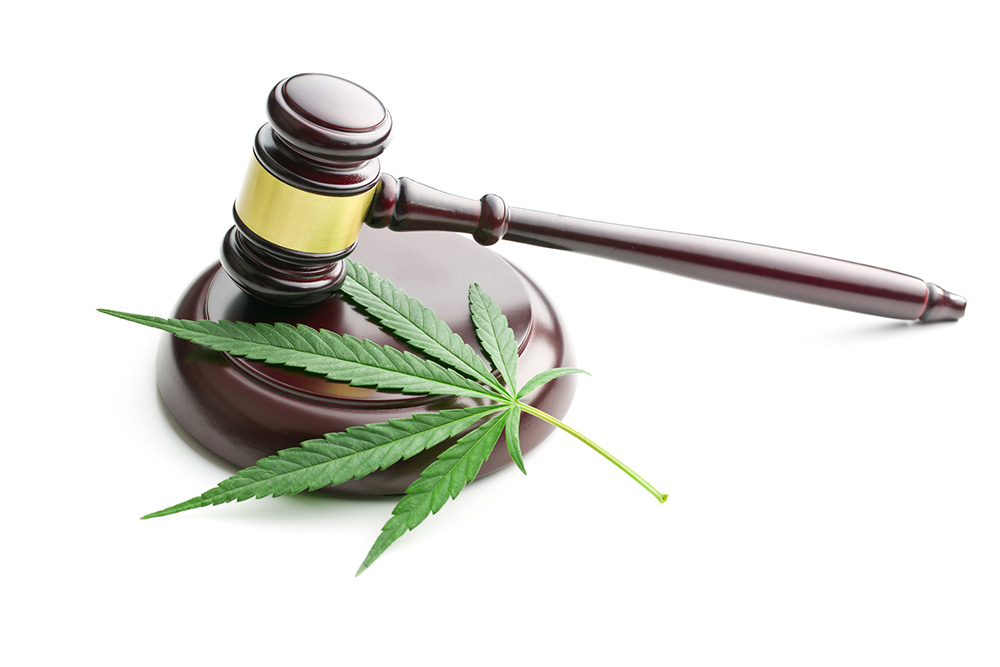If members of your workforce are immigrants (they have a green card) or are working temporarily in the United States in any visa category, including as farm workers, hospitality workers, healthcare workers, or students, they shouldn’t use any drugs or substances prohibited under federal or state drug schedules. The schedules prohibit cannabis, or marijuana, use even when it’s legal under state law for either medicinal or recreational purposes.
How Is Cannabis Classified?
The U.S. Drug Enforcement Agency’s (DEA) website describes how it classifies (or schedules) narcotics and other plants and drugs. Federal criminal law considers Schedule I drugs to be the most dangerous and addictive.
Surprisingly, marijuana is a Schedule I drug under federal law and some states’ laws. The DEA states: “Schedule I drugs, substances, or chemicals are defined as drugs with no currently accepted medical use and a high potential for abuse. Some examples of Schedule I drugs are: heroin, lysergic acid diethylamide (LSD), marijuana (cannabis), 3,4-methylenedioxymethamphetamine (ecstasy), methaqualone, and peyote.”
The Immigrant Legal Resource Center (ILRC) produced a well-done and straightforward video on the immigration consequences of using marijuana: “What Every Noncitizen Must Know About Cannabis and Immigration.”Anyone who is looking to enter or remain in the United States temporarily or permanently should watch it.
Risks for Immigrants?
Plenty. It’s hard to believe, but the consequences can be severe unless the amount is less than 30 grams, which can trigger a personal-use exemption under immigration law. But even then, someone who already has either a criminal record or an immigration-violation history may lose the benefit of the personal use exemption. An immigrant could face deportation, loss of lawful permanent residency, jail, inability to become a citizen, or be denied admission to the United States after a trip abroad, among other consequences.
As more states start legalizing recreational marijuana, what does this mean for employers? Find out when you join Ryan Nell for the HR Comply session, “Reefer Madness: Maintaining Compliance and Safety on the Job Amid Changing State Laws,” on April 28, 2021. Click here to learn more!
Considering how many states have legalized cannabis for recreational or medical use, or both, it’s hard to believe the federal government can potentially use this against someone. But it can, and it does.
What If It’s Legal in Your State?
U.S. immigration law is regulated by the federal government, not the states. Therefore, federal drug laws apply in immigration matters, in addition to state drug laws. But federal drug laws will always apply, even if a state legalizes a substance. The nuances of cannabis use under each of the 50 states’ laws, as analyzed under the federal drug laws, are dizzying.
Analyzing immigration cases in the context of criminal law is a very complex process and in fact has become its own subspecialty among immigration lawyers. Immigrants and nonimmigrants, even those lawfully present in the United States, must be extremely careful to avoid any criminal conduct, not just drug use. All foreign nationals with any criminal history, including a mere stop by police or a DUI, are at risk. The topic of criminal conduct (and what constitutes it for immigration law purposes) is broad and beyond the scope of this article.
What Do All Immigrants Need to Know?
- Under federal law, cannabis, commonly known as marijuana, is a Schedule I drug.
- Using cannabis recreationally at home is still a federal crime, regardless of whether it’s legal in the state.
- Using medicinal cannabis with a prescription from a physician in a state where it’s legal is still a federal crime.
- The federal government has prosecuted people for drug trafficking simply for working in the cannabis industry.
- U.S. Customs and Border Patrol has the authority to search phones and laptops for any signs of marijuana use, including party photos on social media, e-mails, or text messages, and deny entry into the country. The authorities know that many people will admit to marijuana use because it’s legal in certain states, under some circumstances.
- Even if you have your green card, you risk losing it depending on the quantity of marijuana in your possession, how long after you obtained your green card you used it or were charged with possession of it, and other factors.
Finally, another cannabis-like substance used by some East African immigrants called “khat” isn’t listed specifically by that name, but rather by the chemicals it contains, cathinone and cathine. Usually, by the time it arrives illegally in the United States, its potency has waned significantly. An individual’s immigration status can be affected, however, if law enforcement tests for, and finds, the presence of the Schedule I drug cathinone (or even the Schedule IV drug cathine) and charges the person with possession, use, trafficking, or paraphernalia.
Final Note
Hopefully, in the next few years, the federal government will exempt marijuana from the list of Schedule I drugs that can lead to such severe and often-irreversible immigration consequences. If one of your foreign-national employees is filing for an immigration benefit or traveling after a drug arrest, stop, or conviction, they should consult with an immigration attorney before submitting any immigration application or leaving the U.S.
Sonseere H. Goldenberg is an immigration attorney with Felhaber Larson in Minneapolis, Minnesota. You can reach her at sgoldenberg@felhaber.com. Immigration attorneys can assist clients in any state on federal immigration matters.

